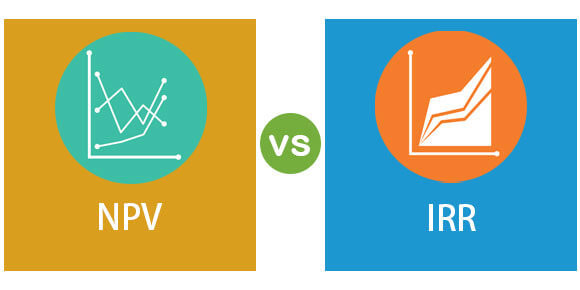In today's fast-paced world, where immediate results often take precedence, the concept of "Trusting the Process" might appear outdated. Nevertheless, in the realm of Finances, this enduring wisdom is more relevant than ever. Trusting the Process involves more than blind faith; it signifies wholeheartedly embracing the financial journey.
It demands a keen awareness that financial improvement is not a quick triumph but a deliberate sequence of steps. To trust the process is to acknowledge that sustainable financial growth is achieved through intentional and consistent efforts, dispelling the notion of overnight success in favor of a mindful and purposeful approach.
Why Trusting the Process is Important
The trust serves as the cornerstone that binds our financial aspirations. Much like constructing a sturdy house necessitates a robust foundation, attaining financial success hinges on unwavering confidence in the gradual strides you take.
In the absence of trust, apprehension, and uncertainty may cast shadows over your discernment, fostering impulsive choices detrimental to your enduring financial welfare. Trust, therefore, emerges as the stabilizing force, ensuring your financial journey stands resilient against the storms of doubt, allowing you to navigate towards lasting prosperity with clarity and conviction.
How Does Trusting the Process Apply to Finances?
Trusting the financial process requires cultivating a mindset that recognizes the profound significance of the journey. It entails grasping the non-linear nature of financial growth embracing the rhythm of ups and downs, successes, and setbacks. This approach serves as an anchor, anchoring your commitment to long-term goals, especially in the face of unforeseen challenges.
By understanding that financial evolution is a dynamic, evolving path, you empower yourself to navigate uncertainties with resilience and determination, reinforcing the belief that each twist and turn contributes to your overall financial journey.
Ways You Can Trust in the Process When It Comes to Your Finances
Trusting the financial process is essential for long-term success. Here are five practical ways to foster trust in your financial journey:
Setting Realistic Financial Goals
Set attainable financial milestones, meticulously breaking down larger objectives into manageable steps. Revel in each accomplishment, recognizing that these incremental successes play a pivotal role in fostering confidence.

By acknowledging and celebrating these small victories, you reinforce your trust in the overarching financial process, creating a solid foundation for sustained growth and achievement.
Approaching Budgeting Strategically
View budgeting as a strategic tool rather than a restriction. Allocate funds judiciously, balancing essentials, savings, and discretionary spending. A meticulously crafted budget becomes a cornerstone, fostering trust in your ability to manage money effectively and achieve your financial objectives.
Continual Financial Education
Ongoing self-education in financial matters is crucial. Grasping key concepts not only empowers you to make well-informed decisions but also boosts your confidence. This continual learning reinforces trust in your ability to navigate diverse financial scenarios with competence and adaptability.
Embracing Financial Flexibility
In life's unpredictable terrain, adaptability is paramount. Embrace the need for flexibility in your financial plans as circumstances unfold. This openness to change reinforces trust in your resilience and your adeptness at navigating unexpected shifts, solidifying your confidence in the overall financial journey.
Building a Robust Emergency Fund
Building an emergency fund is a proactive step toward preparedness. This financial safety net instills confidence and trust, assuring that you can face challenges without compromising your long-term goals. Each of these practices contributes to cultivating a mindset of trust, ensuring a resilient and steady financial journey.
By incorporating these practices, you nurture a mindset of trust, ensuring a steady and resilient financial journey.
Embracing Financial Mindfulness: A Crucial Step in Trusting the Process
In the whirlwind of daily financial activities, embracing mindfulness can be a game-changer in your journey toward financial improvement. Here are four key aspects of incorporating financial mindfulness that will help you trust the process more effectively:
Present Moment Awareness
In the realm of finance, decisions often oscillate between future planning and dwelling on past mistakes. Cultivating present-moment awareness provides a profound shift, aligning you with your current financial reality. This heightened awareness empowers deliberate decision-making in the present, fostering a valuable sense of control and confidence in the ongoing financial process.
Understanding Your Financial Triggers
Recognizing the emotions and situations that trigger impulsive financial decisions is a cornerstone of financial mindfulness. Whether it's stress, boredom, or societal pressures, understanding these triggers allows you to respond thoughtfully rather than react impulsively. Trusting the Process involves navigating these triggers with a clear and mindful perspective.
Conscious Spending Habits
Mindful spending extends beyond mere expense tracking; it encompasses comprehending the motivations behind your purchases. Prior to financial decisions, assess if they align with your values and long-term goals.

This intentional spending approach nurtures trust in your capacity to make choices that not only harmonize with your values but also positively contribute to your overall financial well-being.
Gratitude for Financial Progress
In the relentless pursuit of financial goals, it's common to underestimate your achievements. Cultivating gratitude for your present financial state, no matter how modest the successes, cultivate a positive mindset. Trusting the process becomes second nature as you recognize and value the strides you've made, fortifying your dedication to sustained financial enhancement.
This practice not only fosters contentment in the present but also bolsters your confidence in the journey toward long-term financial prosperity.
Conclusion
Trusting the financial improvement process isn't mere blind faith; it's a deliberate choice to believe in your capability to navigate the journey. It involves establishing a robust foundation of enduring financial habits.
Through the conscious setting of achievable goals, prudent budgeting, continuous education, flexibility in adapting to changes, and the cultivation of patience, you equip yourself to surmount challenges. This empowerment paves the way for achieving enduring financial success, emphasizing that each intentional step contributes to the resilience and sustainability of your financial well-being.




